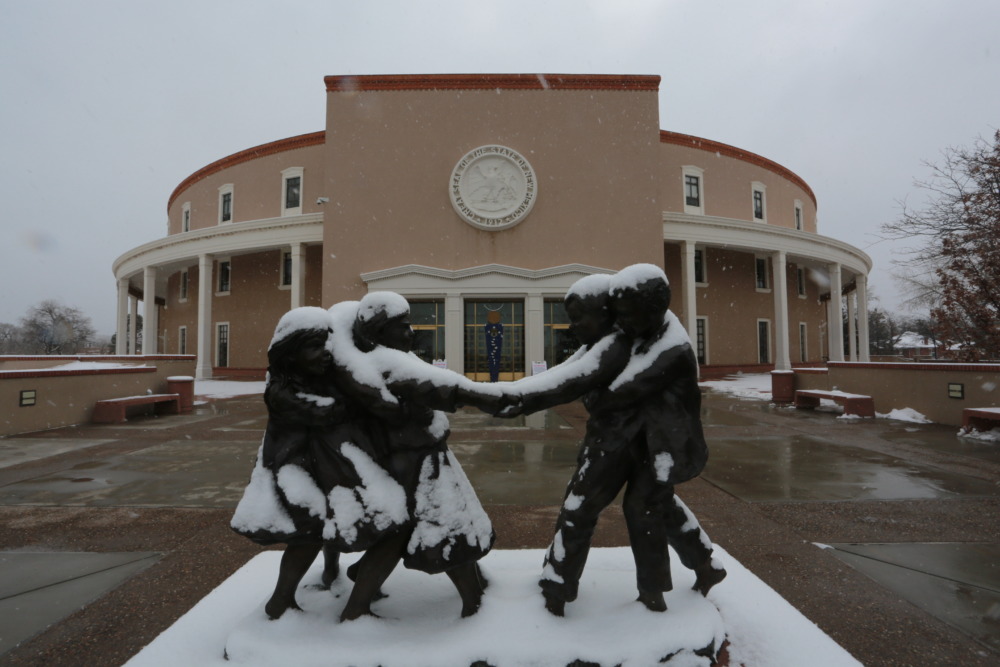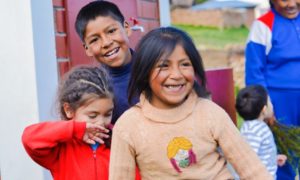ALBUQUERQUE, N.M. — New Mexico lawmakers have passed a bill that strengthens protections for Native American children in state care. Gov. Michelle Lujan Grisham is expected to sign it into law soon.
The New Mexico Indian Family Protection Act enshrines in state law key provisions of the federal Indian Child Welfare Act, which gives preference to Native families and communities when it comes to fostering or adopting Indigenous children.
Passing a state law was a priority for Native activists because the federal law is being challenged in court, and some fear it could be weakened or even struck down entirely. Brackeen v. Haaland, a lawsuit concerning the adoption of a Navajo youth by a non-Native family, is currently before the U.S. Supreme Court.
“This is huge,” said Jacqueline Yalch, president of the New Mexico Tribal Indian Child Welfare Consortium, social services director of the Pueblo of Isleta, and an enrolled member of the Pueblo of Isleta. “These added protections really focus on the spirit of the intent of [the federal Indian Child Welfare Act], and it’s coming back to the focus of children, families, tribes and culture.”
According to testimony during the legislative session, 60 percent of Indigenous youth in state foster care are in preferred placements with extended family, a kinship placement, or with a Native American family in another tribe, pueblo or nation.
In January 2020, New Mexico established its first Native family court dedicated to hearing cases that fall under the federal law. Child welfare advocates, attorneys and court officials say it has already achieved success keeping more Native children with their families and communities, but a backlog of cases remains.
“Implementation of federal ICWA in New Mexico and other states was flawed,” said Heather Yazzie-Kinlacheeny, an enrolled member of the Navajo Nation and policy fellow at Bold Futures, a New Mexico nonprofit focused on policy research, place-based organizing and cultural shifts.
The state law would also go farther than the federal law in some ways — for example, by requiring the state to give tribes 24-hour notice before removing a Native child from their home. The federal law only requires such notification after the child has been removed.
Additionally, if state child welfare authorities are not able to place a Native American youth with a Native family, they must try again to seek out preferred placement options for these children every six months.
Stakeholders say that the bill is the result of a multi-year collaborative effort between many of New Mexico’s 23 Native American communities. The act also received input from the New Mexico Tribal-State Judicial Consortium as well as the state child welfare agency and Native American social workers.
“It wasn’t crafted by attorneys or systems people,” said Angel Charley, a citizen of the Pueblo of Laguna and executive director of the New Mexico-based Coalition to Stop Violence Against Native Women. “It really was community people coming together telling their stories.”
Phillip A. Perez, former governor and current council member of Nambe Pueblo, echoed Charley’s sentiment.
“It is because of this tribally-led process that we are where we are today,” he said. “The premise of the state Indian Family Protection Act is based on the lived experience of our front-line tribal workers.”
The bill was co-sponsored by Sen. Daniel A. Ivey-Soto (D-Bernalillo), Rep. Georgene Louis (D-Bernalillo) and Rep. Micaela Lara Cadena (D-Doña Ana). Once it becomes law, New Mexico will become the 10th state to adopt its own version of ICWA, according to Bold Futures.
Yazzie-Kinlacheeny said that IFPA will help vulnerable Native youth preserve their connections to their culture and identity.
“My parents’ decision to allow me to grow up partially with my grandparents could have been construed as improper parenting, neglect, or even abandonment,” she said. “I really wanted this bill to go through because I wanted communities in New Mexico to understand that that experience is an integral aspect to my cultural ties and the foundation of my relationship to my people.”






























